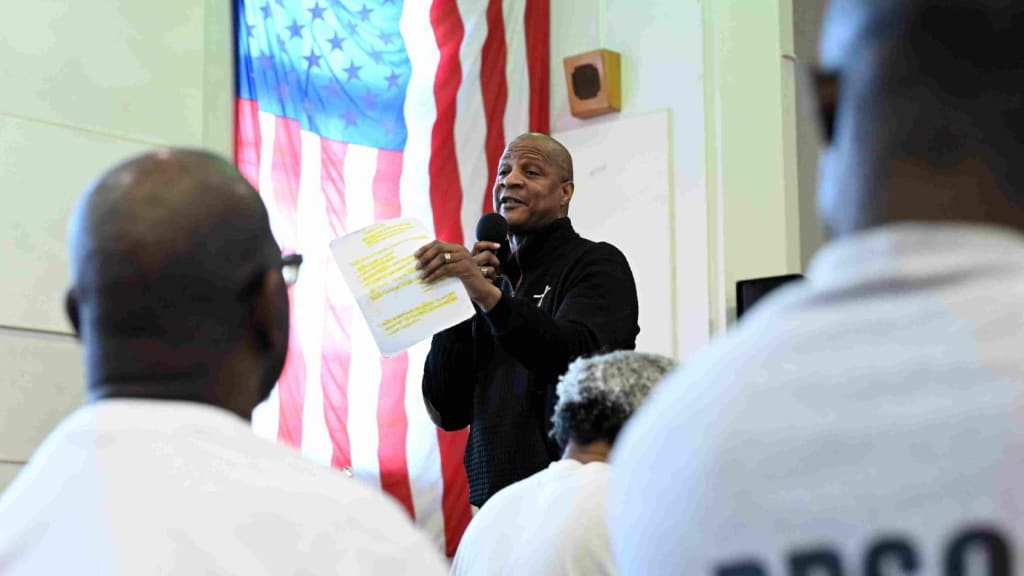
PORT ST. LUCIE, Fla. -- All week, Darryl Strawberry has been an unmistakable presence at Mets camp, his 6-foot-6 frame still imposing as he stands around the batting cage, speaks to current players and imparts what baseball wisdom he gleaned over eight years with the organization and 17 in the Majors. When Strawberry talks, people tend to listen.
Strawberry enjoys his time in camp. He appreciates that the Mets continue building bridges between the organization and its alumni after so many years of strained relations. Sitting on the dugout bench earlier this week, he remarked that he doesn’t really have a particular message for the current group of players.
“I just need a break,” he said with a chuckle. “So I’m taking a break from working.”
Although Strawberry laughed, he was not fully joking. His work is difficult. Quietly, the Mets legend has been crossing the country as a public speaker, most recently directing his attention to prison populations. In the week before coming to Mets camp, Strawberry visited four prisons in the Maryland Department of Public Safety and Correctional Services system, speaking to the assembled masses about his past life as “a heathen, womanizer, alcoholic, addict.” He went on to encourage the inmates to seek religion in their life.
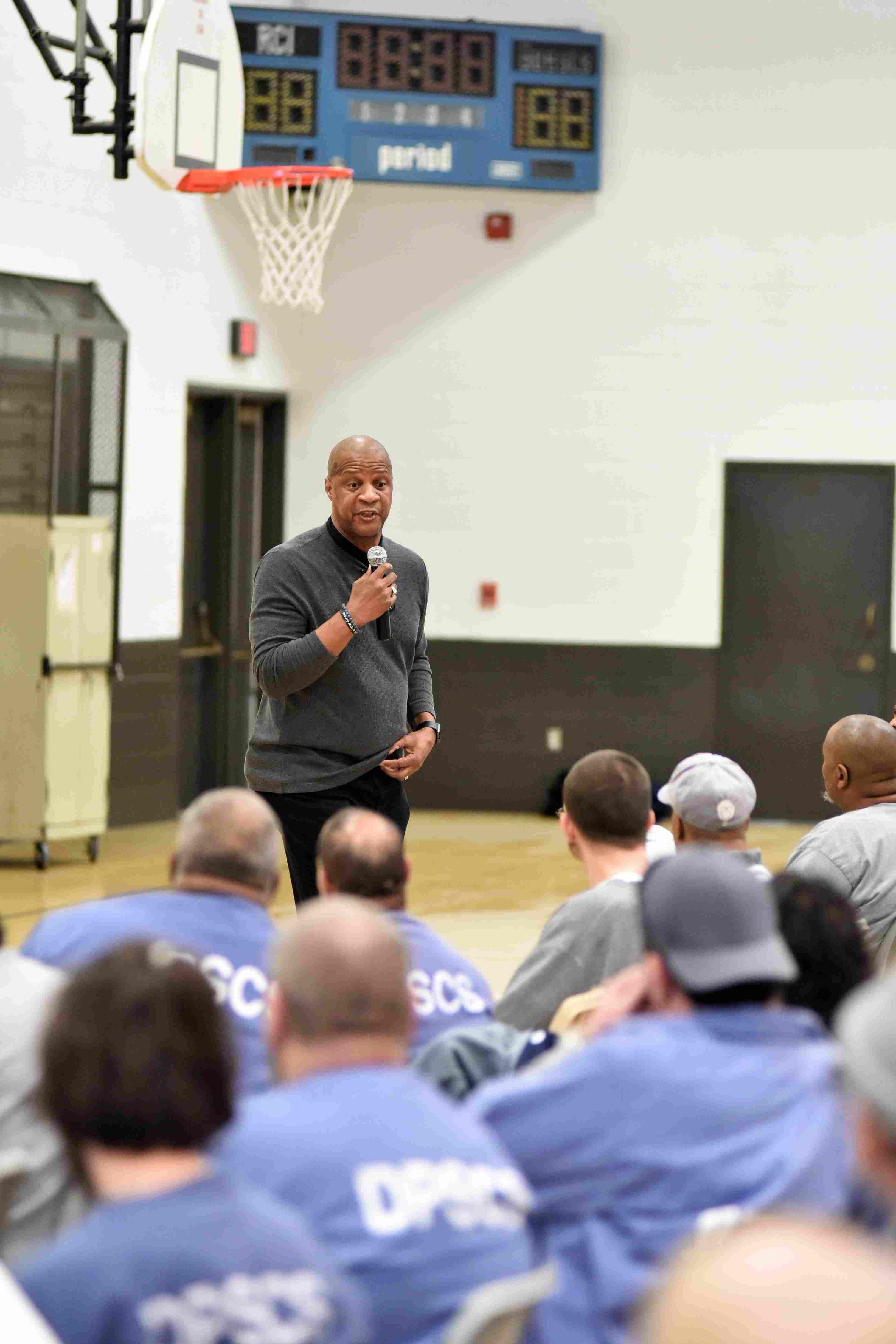
This work is not new for Strawberry, who has been visiting prisons (including maximum-security facilities) for years, has spoken to inmates on death row and initially traveled to the four institutions in Maryland back in 2015. He’s visited correctional facilities in St. Louis, in New York and beyond. But Strawberry, who has also visited churches, schools and hospitals in his career as a public speaker, has recently felt a tug to focus more fully on incarcerated individuals.
“It always just kind of pulled on my heart,” he said, standing in uniform this week on a Clover Park back field. “I’m in ministry. I get a chance to speak with a lot of broken people, hurting people, because once upon a time, that was me. So I just felt like I needed to do that. I felt like I needed to go back and visit some of the toughest situations of life, and really be able to go back and just encourage them, talk to them, and just try to bring some hope.”
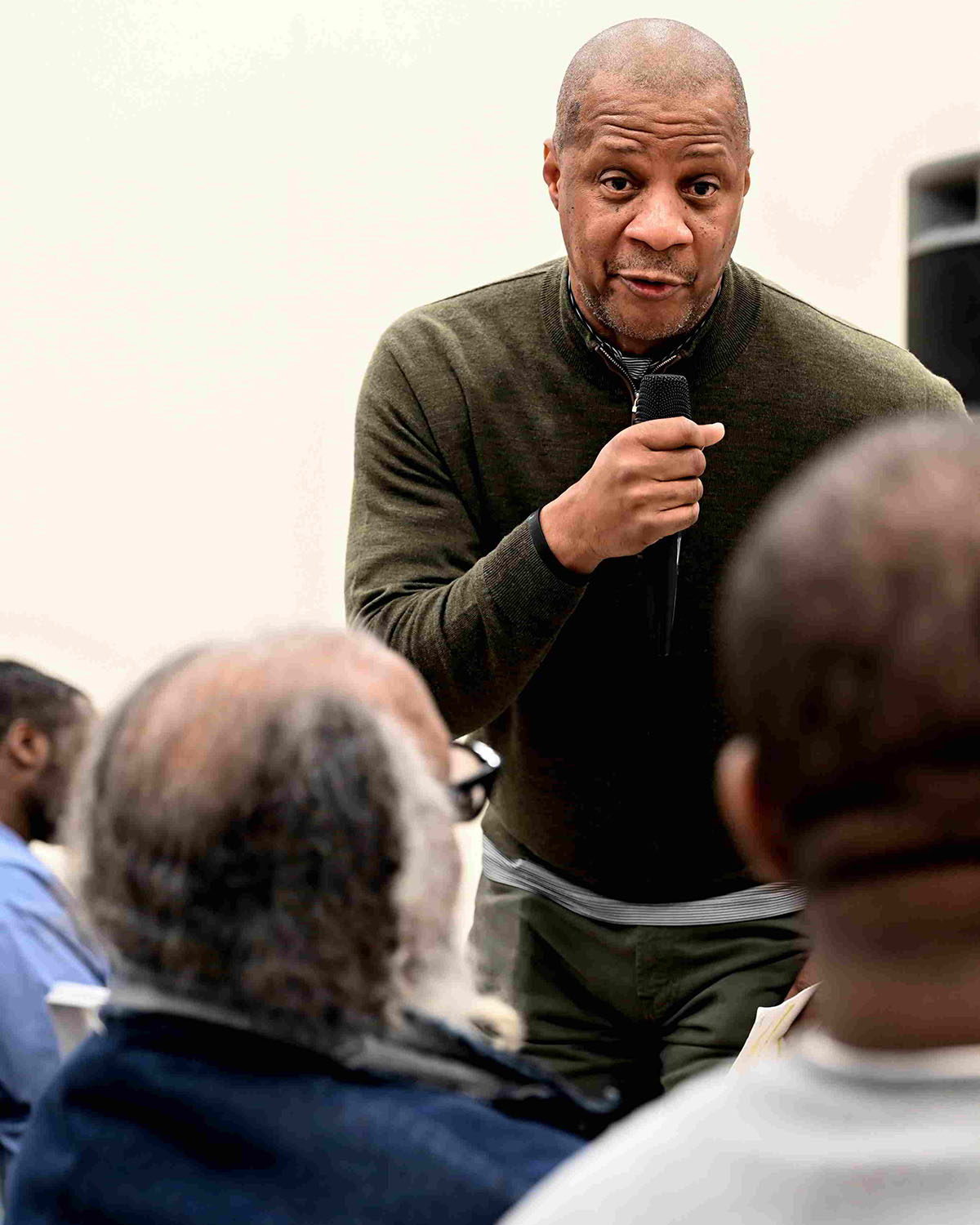
Strawberry’s past problems with drugs, alcohol and other issues are well-documented, resulting in multiple arrests and time served in prison. Following a spell away from the Mets organization, Strawberry has grown closer in recent years. He participated in Old-Timers Day in August of 2022 and will have his No. 18 retired in a ceremony at Citi Field this June.
“He’s a living example of change,” said Gregory Werner, the warden at Maryland Correctional Institution in Hagerstown, in a telephone interview. “I hope that the incarcerated population takes that to heart. He’s an example of how people can change, turn their lives around and become a positive reflection of society. It’s inspiring and uplifting. We can all use that -- not just the incarcerated population.”
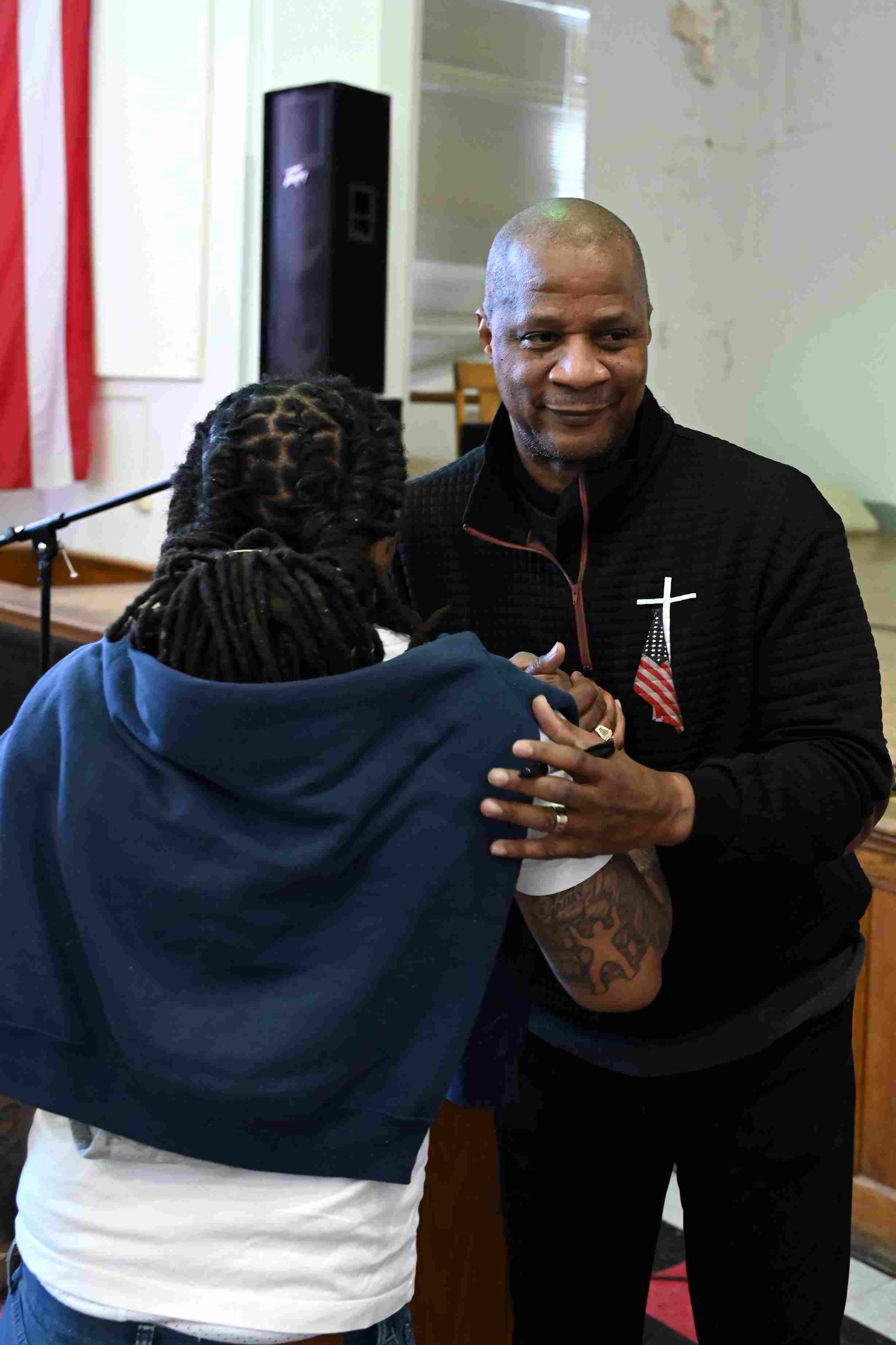
During his recent visit to Hagerstown, Strawberry traveled with one of his sons to teach him about life at such facilities. After delivering a faith-based sermon, he spent time greeting individual prisoners, some of whom he initially met back in 2015. To have a celebrity of Strawberry’s magnitude visit one of these correctional institutions, Maryland Department of Public Safety Correctional Services media relations manager Mark Vernarelli said, is “certainly unusual.”
“It’s clear to me that there’s a special place in his heart for the incarcerated,” Vernarelli continued, describing a rapt audience at all four facilities last week.
“You feel sad for them,” Strawberry added. “You feel sad for their loved ones, you feel sad that their life took a wrong turn. My life took a wrong turn. But I didn’t have to pay a major price, like a life sentence.”
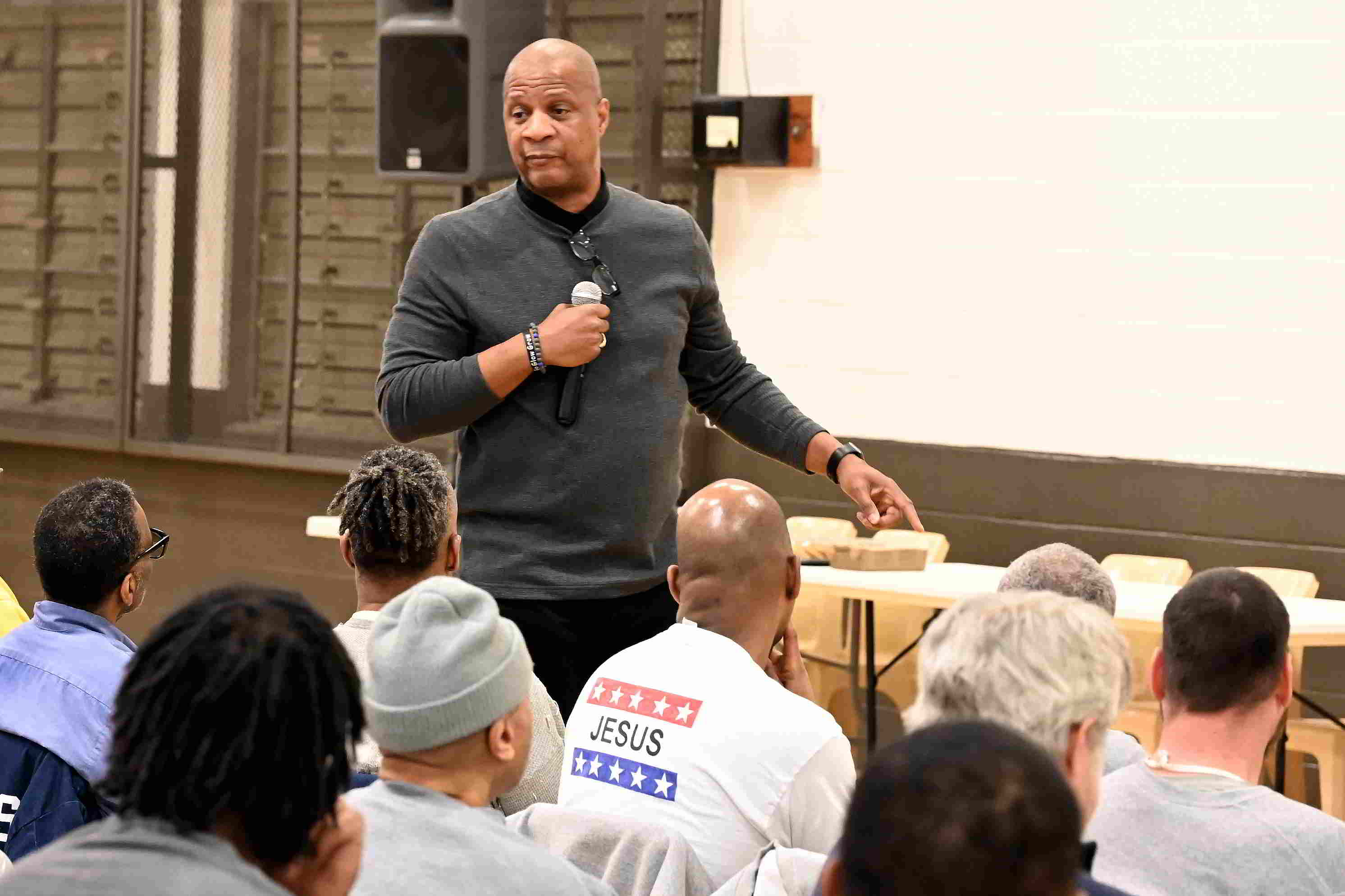
Going forward, Strawberry hopes to spend more time visiting juvenile institutions, because he fears a growing culture in some youth circles that “they think going to prison is cool.” He shakes his head and laughs ruefully as he talks about that aspect of his work, offering hints as to how central this has all become to his life. Before each of his visits, Strawberry said, he can have trouble sleeping. It’s important to him that his message falls on receptive ears.
“Everybody falls short,” Strawberry said. “When you realize that, you realize that they’re people. It brings them hope for someone like me to come in there, because they know I don’t have to be there. And they come. They come to hear me speak to them and deliver a message to them about their life, and where they’re at, and how they can make the best out of their situation.”
